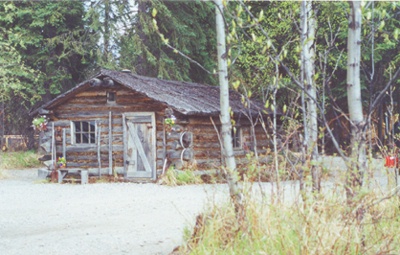All Nonfiction
- Bullying
- Books
- Academic
- Author Interviews
- Celebrity interviews
- College Articles
- College Essays
- Educator of the Year
- Heroes
- Interviews
- Memoir
- Personal Experience
- Sports
- Travel & Culture
All Opinions
- Bullying
- Current Events / Politics
- Discrimination
- Drugs / Alcohol / Smoking
- Entertainment / Celebrities
- Environment
- Love / Relationships
- Movies / Music / TV
- Pop Culture / Trends
- School / College
- Social Issues / Civics
- Spirituality / Religion
- Sports / Hobbies
All Hot Topics
- Bullying
- Community Service
- Environment
- Health
- Letters to the Editor
- Pride & Prejudice
- What Matters
- Back
Summer Guide
- Program Links
- Program Reviews
- Back
College Guide
- College Links
- College Reviews
- College Essays
- College Articles
- Back
More Than a Credit
I can’t possibly be ready for this, I thought as I packed nearly all the clothes I own into my suitcase. A month of camp for a year’s worth of high school language credit, all while getting practically no sleep? Why did I ever think I could handle this? But it was too late to back out, so the next morning I boarded the bus for camp, knowing that no matter what happened, I was in it for the long haul now.
When I stepped off the bus, I immediately felt better. Sjölunden, the Swedish language camp I was attending, had been like a second home to me for seven summers already. Everything looked familiar. As at any Concordia Language Village, everyone gets to choose a new name, and becoming “Helena” again felt wonderfully natural.
But as good as it felt to be back, I was completely thrown by my first day with my cabin mates. For the whole first afternoon, they talked about clothes, which I have little interest in, and reminisced about past camp events I hadn’t enjoyed. I felt so out of place, like I was wearing a jingle dress in a library.
Class placement started the next morning. In groups of three, we visited various stations and played language-use games that tested our Swedish-speaking ability. The other two people in my group were both older than I was, and their Swedish was better. I was sure I’d be placed in a relatively low class.
Class lists were read off that afternoon, starting with Class One, the lowest, and progressing to Class Four, the highest. When my best camp friend was placed in Class Three, I was nearly sure I would be put there, too—the previous year, there had been practically no difference between my ability and hers. But my name wasn’t read with Class Three.
I didn’t believe I was in Class Four until I actually heard my name announced. I was the youngest person in the class by two grade levels and by far the least experienced. As we walked to our classroom, I caught up with one of the seniors, a boy whom I sort of knew from other Swedish-related activities back home, and asked him why the heck he thought I was in Class Four, inexperienced as I was. “’Cause you’re practically fluent, duh,” was his answer, and, even though it wasn’t true, it made me much less apprehensive.
If I were an animal, school would be my native environment. As soon as classes started, I relaxed. I had a great teacher who came from Sweden and taught German to Swedish high schoolers in real life. The whole class loved her immediately. She taught us Swedish through a somewhat unorthodox program called Svensk som Annansprak, which means “Swedish as a Second Language.” Even though Svensk som Annansprak tests proved impossible to study for, due to their lack of vocabulary lists and other traditional language-test staples, we all liked the program because it made language learning a lot more fun than the way we were used to learning in school.
There was a lot more to being a credit than just the lessons part. We credits played Ninja together during free time, shared clothes, and learned all the camp line dances that the two-weekers always forgot. I got to know, respect, and like my cabin mates, who weren’t actually as different from me as I had originally thought. On off-weekend, the weekend between the two two-week sessions, we had no lessons, and we got to hang out and watch American movies and make our own credit-exclusive memories. We made each other laugh and saw each other cry.
Before I left for camp, I was very scared. Though it was my eighth year at Sjölunden, I’d never been a credit before. Now, though, I can’t understand how I ever thought two weeks of camp was enough. Credithood is so different from life as a two-weeker, and I know without a doubt which one I prefer. We credits do a lot more work, but we don’t mind, because we have so much more fun. Because of the way camp works—all the credits visit the laundromat together on off-weekend, for instance—there is no real privacy, and everyone winds up a lot closer because of that; this taught me a lot about getting along with people different from myself. Also, because of how many experiences we credits cram into our time, we make very good friends very quickly. I hope I can stay in touch with them in the time before we can all go back to our “second home.”
Despite how scared I was at the beginning, one thing is now absolutely certain: I’m going to be a credit again next year, because credithood is just about the most awesome thing ever.

Similar Articles
JOIN THE DISCUSSION
This article has 2 comments.
